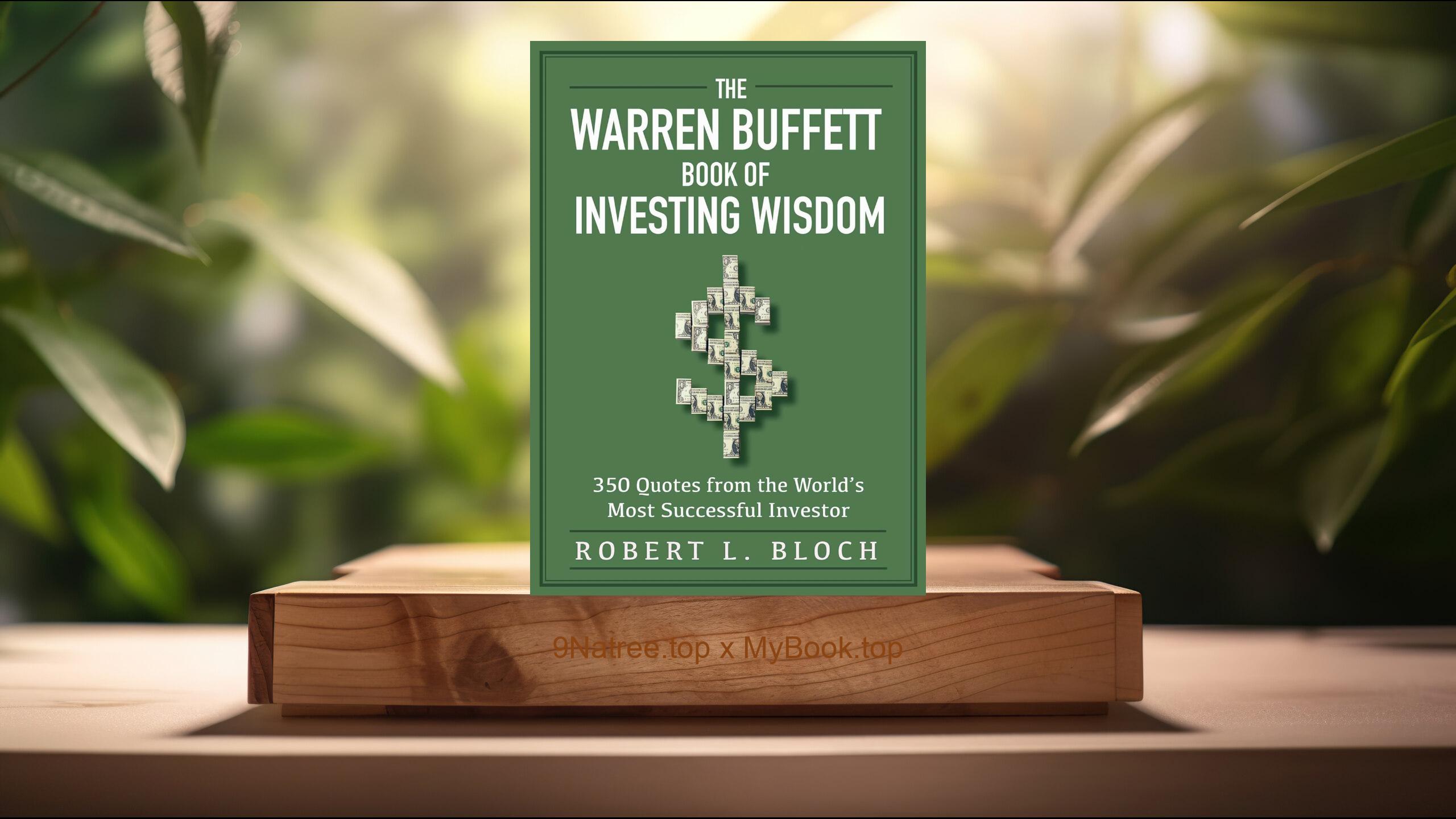Show Notes
- Amazon US Store: https://www.amazon.com/dp/0966446143?tag=9natree-20
- Amazon Worldwide Store: https://global.buys.trade/The-Essays-of-Warren-Buffett-Lessons-for-Corporate-America-Lawrence-A-Cunningham.html
- Apple Books: https://books.apple.com/us/audiobook/the-essays-of-warren-buffett-lessons-for/id1681180501?itsct=books_box_link&itscg=30200&ls=1&at=1001l3bAw&ct=9natree
- eBay: https://www.ebay.com/sch/i.html?_nkw=The+Essays+of+Warren+Buffett+Lessons+for+Corporate+America+Lawrence+A+Cunningham+&mkcid=1&mkrid=711-53200-19255-0&siteid=0&campid=5339060787&customid=9natree&toolid=10001&mkevt=1
- Read more: https://mybook.top/read/0966446143/
#ValueInvesting #CorporateGovernance #WarrenBuffett #InvestmentStrategies #FinancialAnalysis #BerkshireHathaway #AcquisitionsandMergers #AccountingPrinciples #TheEssaysofWarrenBuffett
These are takeaways from this book.
Firstly, Value Investing, Value Investing is a fundamental concept frequently highlighted throughout 'The Essays of Warren Buffett.' This approach to investing is based on the principle of selecting stocks that appear to be trading for less than their intrinsic or book value. Buffett elaborates on the idea that investing should always focus on acquiring quality businesses at reasonable prices. He emphasizes the importance of understanding a business's fundamentals and its long-term prospects rather than speculating based on market trends. Buffett’s patience and discipline in waiting for the right opportunity to purchase undervalued securities have been key to Berkshire Hathaway’s success. The essays provide numerous examples to illustrate how focusing on the intrinsic value of a company, rather than temporary market fluctuations, can lead to substantial long-term gains. For investors, this underlines the importance of due diligence and the advantages of buying and holding onto investments in fundamentally strong companies.
Secondly, Corporate Governance, Corporate Governance is a central theme in Buffett's letters, reflecting his conviction that strong, transparent, and ethical governance practices are foundational to corporate success. Through his essays, Buffett highlights the significance of aligning management’s interests with those of the shareholders, advocating for straightforward and fair compensation structures, and the role of a board of directors in providing checks and balances. He often stresses the importance of accountability, leadership integrity, and the selection of directors who are genuinely invested in the company's welfare beyond personal gain. The discussion on corporate governance goes beyond theoretical prescriptions; it includes practical advice on structuring boards and enhancing shareholder communications. Buffett's insights into corporate governance serve as a blueprint for building companies that strive not only for profitability but also for fairness, transparency, and responsibility towards stakeholders.
Thirdly, The Role of the Investor, In 'The Essays of Warren Buffett,' the role of the investor is meticulously explored, emphasizing active engagement and thorough research as key components of successful investing. Buffett discourages the passive consumption of market trends and news, advocating instead for a deeper analysis of a company's operational performance, governance, and competitive advantages before making investment decisions. He stresses the importance of investors educating themselves about the industries in which they invest, understanding the financial statements, and avoiding the herd mentality typical of speculative trading. Buffett’s approach is about being a committed, informed stakeholder rather than a speculative trader. This mindset shift from short-term trading to long-term investing requires patience, discipline, and a willingness to learn and understand complex business models. Through his essays, Buffett champions the idea of the investor as a part-owner of the business, which instills a sense of responsibility and a long-term perspective in making investment choices.
Fourthly, Acquisitions and Mergers, Warren Buffett delves into the intricacies of acquisitions and mergers, laying out the rationale behind Berkshire Hathaway's investment choices in this area. He elucidates his preference for straightforward, understandable deals and his aversion to overpaying, no matter how attractive a business may seem at first glance. The key, according to Buffett, is in identifying companies with durable competitive advantages—what he famously terms 'economic moats'—and sound management teams who are in it for the long haul. Additionally, Buffett's essays shed light on the importance of cultural compatibility in acquisitions and the risks associated with integrating businesses that have disparate corporate cultures. His conservative approach emphasizes the synergy between companies beyond mere financial metrics, advocating for strategic patience and thorough due diligence. These insights offer valuable lessons for business leaders and investors on the complex dynamics of mergers and acquisitions, highlighting the need for a principled strategy that prioritizes long-term value creation over short-term gains.
Lastly, Financial Statements and Accounting, Buffett’s insights into financial statements and accounting principles form a crucial part of his investment philosophy, as detailed in 'The Essays of Warren Buffett.' He emphasizes the importance of understanding a company's financial health through its balance sheet, income statement, and cash flow statement. Buffett believes that transparent and conservative accounting practices are essential for revealing a true picture of a company's financial position and performance. He is critical of accounting gimmicks and the manipulation of earnings to meet short-term investor expectations, which can obscure a company’s real economic situation. The essays serve as a guide for interpreting financial statements, discerning between genuine value and artificial enhancements to a company's reported earnings. Buffett's approach encourages a deeper analysis of accounting practices, fostering a skeptical and inquisitive mindset among investors towards the financial disclosures of companies. His teachings underscore the power of informed and diligent financial analysis in identifying solid, well-managed companies for long-term investment.
![[Review] The Essays of Warren Buffett: Lessons for Corporate America (Lawrence A. Cunningham) Summarized](https://episodes.castos.com/660078c6833215-59505987/images/1873017/c1a-085k3-pkj8x786h164-85n91w.jpg)




